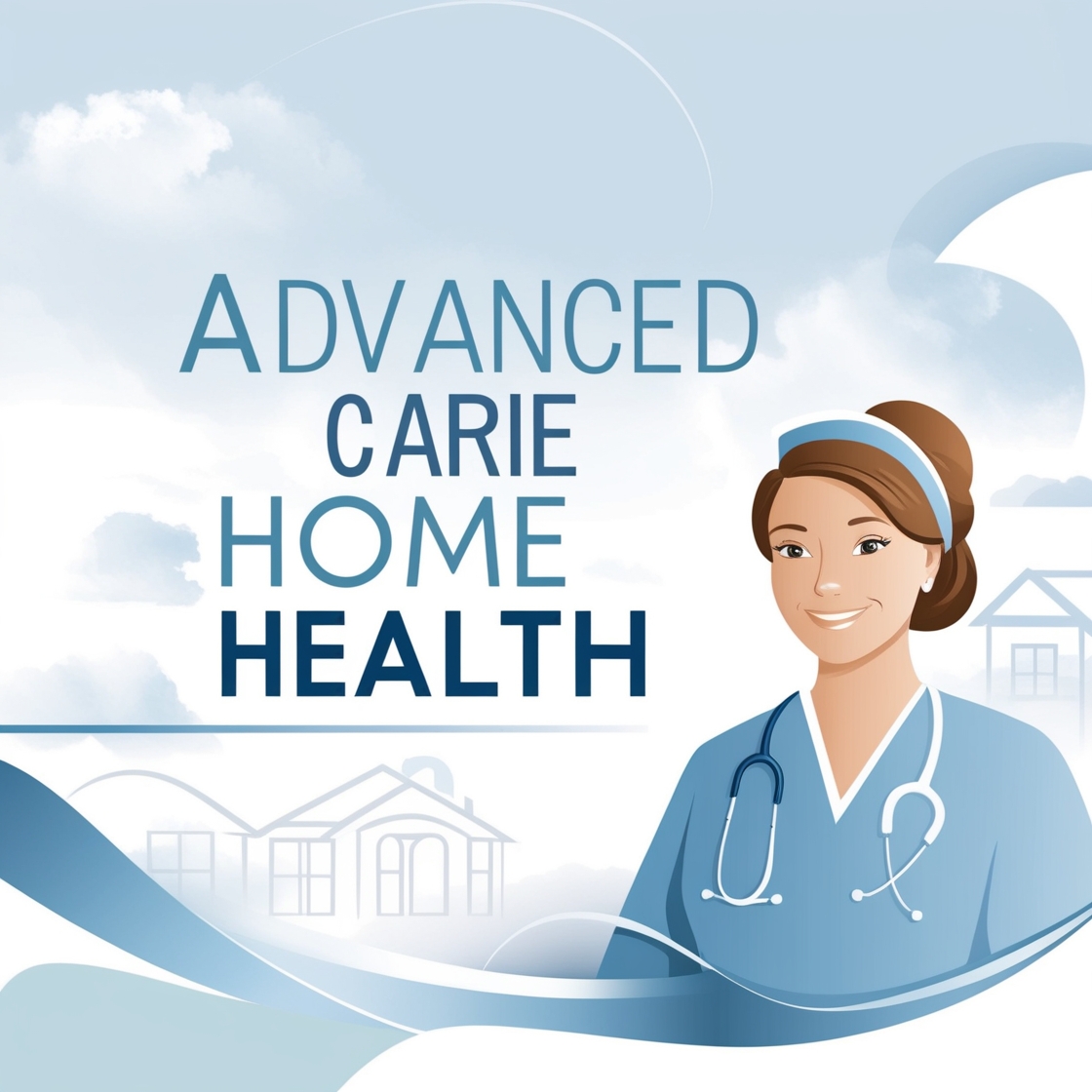In today’s world, as our population ages, the need for advanced care homes has never been greater. For families considering long-term care for their loved ones, it’s essential to understand what advanced care home health involves. How do these care homes differ from traditional nursing homes? What makes a good advanced care facility? Let’s explore these questions and more as we dive into the world of advanced care home health.

What is Advanced Care Home Health?
Advanced care home health is that type of home health that is a step up from the traditional nursing homes or assisted living facilities. These facilities are designed to cater for certain aliments and diseases some of which include chronic diseases, severe disabilities, and pre- stage diseases like dementia. In some ways, an advanced care home is, in fact, a more complex version of a normal care home – the home where individuals receive professional medical and nursing care.
Why Choose Advanced Care Over Traditional Care Homes?
You may ask yourself such questions as ‘Why should I turn to advanced care when a standard nursing home would work?’ The answer for this is embedded on the level of care given. Traditional care homes focus primarily on the basics: care including help with matters that are basic to human existence such as; dressing, bathing and feeding. Intermediate or intermediate flexible care homes in contrast, are intermediate CAR and are designed to offer medical support, rehabilitation and therapy to residents who may have more severe or long-standing heath complications. For instance, if the patient had Parkinson disease, or advanced heart failure, he or she will require a type of care that a normal home can hardly offer.
Types of Care Provided in Advanced Care Homes
Advanced care homes offer a variety of services tailored to meet the needs of individuals with complex health conditions. Some of the primary services include:
- 24/7 Medical Supervision: On-site medical doctors and qualified registered nurses guarantee the medical needs are well addressed.
- Rehabilitation Services: Physical, occupational, and speech therapy enable residents stay as independent as possible in the course of their stay.
- Palliative and Hospice Care: Digital practice environments have been defined as advanced care homes where comfort becomes a focus of care for individuals who are approaching the end of life and where patients receive adequate pain control.
- Specialized Care for Chronic Conditions: This entails products for treating ailments such as diabetes, Alzheimer’s, stroke, or subsequent rehabilitation, and so on.

The Role of Healthcare Professionals in Advanced Care Homes
There are several indicators of good life quality of the residents in advance care homes, and the primary caretakers are health care professionals. These practitioners include physicians, registered nurses, physical therapists, diagnosticians and social workers. Together with the administration and other staff, both medical and psychological health of the residents are looked into.
For instance, the nurse may check on the residents’ temperature or blood pressure and then give the required doses of some drugs while a dietitian may write diet charts according to a resident’s health condition. There is always counseling from a social worker for families as they struggle to come to terms that someone they love is in care. The goal of this team is for all residents to feel protected, valued and appreciated by every team member in the center.
How to Choose the Right Advanced Care Home for Your Loved One
Choosing the right advanced care home can be overwhelming, but a few key factors can help make the decision easier. When evaluating options, consider:
- Location: It is perhaps useful to be close to relatives and/or friends because visits from these persons may be a strong source of comfort for the patient.
- Reputation: Check the home’s ratings, certifications and their standing in the society.
- Services Offered: Ensure that the facility provides the medical and therapeutic type desired by your loved one.
- Facility Amenities: Whether it’s about size of rooms or easiness of access to outdoors, comfort does matter.
- Cost: Learn about the charges and whether the facility operates on insurance or provides for the financially constrained.
Technology and Innovation in Advanced Care Homes
In the present world, health care is among the industries which are being boosted by technology, and this has also applied to advanced care homes. Modern care homes already deployed equipment like telemonitoring, computerized documentation systems, and even smart health management systems to guarantee the most effective quality care to the residents.
For instance, special care facilities have been fitted with wearable-based health technologies that not only track mechanical statistic signs such as pulse and blood pressure but also send notifications to the care givers on any emerging trends as soon as they occur. Telemedicine services make it possible for residents to see a specialist are being attended to within the facility hence avert a hospital visit.
Physical and Emotional Well-being: A Holistic Approach
While in advanced care homes, basically, the involvement is not merely on the management/ cure of diseases – it is on the individual as a person appreciated in his/her entirety. This includes offering exercise, social contact and encouragement to residents in order to make them active. For instance, patients can select activities such as exercise, physical therapy, art therapy and music therapy or even gardening and yoga, among others.
On the emotional side, the mental health is very needed for the people in this age. Most of the developed centers have implemented services of counselors and conduct group sessions in order to minimize cases of residents feeling lonely and forsaken during their stay at the respective centers.
What to Expect from an Advanced Care Home Experience
When you or a loved one enters an advanced care home, it’s normal to have concerns and questions. So, what can you expect?
- Comfortable Living Spaces: Everything within and around the premises whether personal space or common places is made to be comfortable and friendly.
- Personalized Care Plans: Which each resident develops an individualized care plan, which he/she himself and care givers draw up in consultation with physicians and relatives.
- A Strong Support System: When you have on-site caregivers, social workers and healthcare providers, you meet with company in dealing with advanced care issues.

Cost of Advanced Care Homes: What Families Need to Know
To that extent, it is vital to understand the cost implication of the advanced care home for those planning for long-term care. prices differ depending on the location, needs, and services required in a center and the kind of end of life care offered. Depending on what particular advanced care home you choose, you may have to pay anywhere from $4,000 to $10,000 for one person’s private room per month.
Some families rely on insurance or Medicaid and some whose fathers are veterans, are able to offset certain costs. It is wise to inquire whether the relatives love and accept them enough to pay for these services and consult the financial planner in order to ensure that your family is able to afford this luxury.
Signs of a Good Advanced Care Home Facility
A good advanced care home should provide the following indicators:
- High-quality professional caregivers that go the extra mile to ensure they treat all the residents in their facility humanely.
- Clean and well protected living areas with new equipment and tools which are medical ones.
- A great emphasis on family involvement and reporting on the status of a resident as often as possible.
- Many facilities and pursuits that closely relate to body and mind functions and are beneficial for personal health.
Legal and Ethical Considerations in Advanced Care Homes
Many legal and ethical issues exist in regards to advanced care. Such homes are usually bound by legal provisions aimed at protecting people’s rights in the homes. This concerns, for example, guaranteeing that the residents are well taken care of medically, that their privacy and dignity are respected.
The Importance of Family Involvement in Care Homes
This paper seeks to highlight ways in which families facilitate the achievement of advanced care home health. Remaining engaged in your family member’s care means that the person will get adequate care and emotional needs met. Meet often, talk to personnel, and attend care conferences to keep abreast of changes your loved one.
Government Support and Assistance for Advanced Care
The government provides many options to help families to pay for the expenses of advanced care homes. Additional government based programs include Medicaid and Veteran’s administration that will help in offering subsidies or cash rebates for management of the costs. It helps if individuals find out the requirements that have to be met to benefit from these services and some of the processes that have to be followed.
The Future of Advanced Care Homes: Trends and Innovations
Advanced care homes are the future direction of care homes with a focus on technology, person-centred care and innovation evident. Future trends that are quite likely to develop include even more advanced systems of Health Informatics to monitor the elderly, the next level of adoption of artificial intelligence to diagnose all sorts of conditions, integrated productivity wellness programs to enhance the residents’ wellbeing.
Conclusion: The Importance of High-Quality Care for Our Elderly
In our lifetime, there will always come a time that will require specialist services to manage our health condition. There are tremendous advantages of more specialist specifically in giving health care solutions to the families that wish to have their family members to be given quality heath by advanced care home health. Thus, knowing what to expect and the services offered the better placed one is to ensure that their family member receives the right care.
FAQs
1. What is the difference between an advanced care home and a nursing home? An advanced care home offers specialized medical services for individuals with complex health needs, while a nursing home typically provides basic
<script type="application/ld+json">
{
"@context": "https://schema.org",
"@type": "BlogPosting",
"mainEntityOfPage": {
"@type": "WebPage",
"@id": "https://healthyhappened.com/wp-admin/post.php?post=75&action=edit"
},
"headline": "Advanced Care Home Health - Ensuring Quality Care for Your Loved Ones",
"description": "Advanced healthcare refers to the use of cutting-edge technologies, innovative treatments, and modern medical practices to improve patient outcomes, enhance diagnosis, and increase the efficiency of healthcare systems. This includes the integration of artificial intelligence, telemedicine, robotic surgery, personalized medicine, and advanced diagnostic tools",
"image": "https://healthyhappened.com/wp-content/uploads/2024/11/Leonardo_Phoenix_A_warm_and_inviting_photograph_depicting_a_se_0-1-1024x1024.jpg",
"author": {
"@type": "",
"name": ""
},
"publisher": {
"@type": "Organization",
"name": "",
"logo": {
"@type": "ImageObject",
"url": ""
}
},
"datePublished": ""
}
</script>

